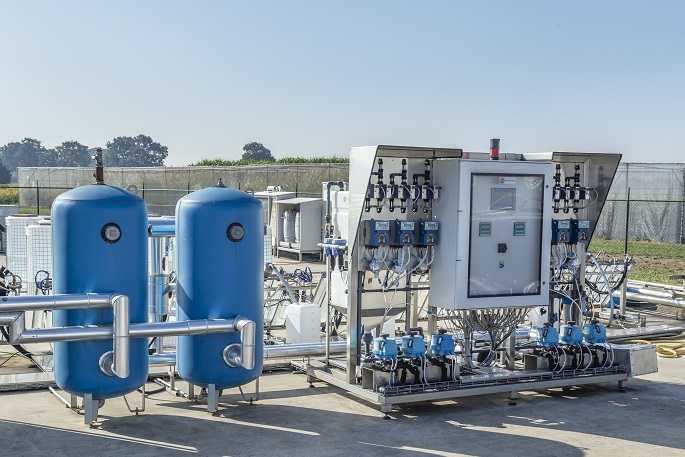
 Data Structure
Data Structure Networking
Networking RDBMS
RDBMS Operating System
Operating System Java
Java MS Excel
MS Excel iOS
iOS HTML
HTML CSS
CSS Android
Android Python
Python C Programming
C Programming C++
C++ C#
C# MongoDB
MongoDB MySQL
MySQL Javascript
Javascript PHP
PHP
- Selected Reading
- UPSC IAS Exams Notes
- Developer's Best Practices
- Questions and Answers
- Effective Resume Writing
- HR Interview Questions
- Computer Glossary
- Who is Who
What Are the Benefits of Bioprocessing?
Introduction
Bioprocessing is a versatile process that uses living organisms, such as bacteria, yeast, and fungi, to produce a wide range of products. These products can be anything from food and beverages to pharmaceuticals and industrial chemicals. Bioprocessing has been gaining popularity in recent years due to its many benefits.
In this article, we will explore the benefits of bioprocessing in detail.

Environmentally Friendly
One of the primary benefits of bioprocessing is that it is environmentally friendly. Unlike traditional manufacturing processes, bioprocessing uses natural resources to produce products. For example, the production of industrial chemicals through traditional methods requires the use of fossil fuels, which are non-renewable resources. Bioprocessing, on the other hand, uses renewable resources such as plant material, agricultural waste, and even algae. By using renewable resources, bioprocessing reduces the carbon footprint of production and helps to reduce pollution.
High Yield Production
Another benefit of bioprocessing is that it allows for high yield production. The use of microorganisms in bioprocessing means that large quantities of products can be produced in a short period of time. This is because microorganisms reproduce rapidly, allowing for the production of large quantities of product in a short amount of time. For example, the production of ethanol through bioprocessing can be achieved at a yield of over 80%, whereas traditional methods achieve only a yield of around 50%.
Lower Production Costs
Bioprocessing also has lower production costs compared to traditional manufacturing processes. This is because the raw materials used in bioprocessing are cheaper than those used in traditional methods. Additionally, the use of microorganisms in bioprocessing means that less energy is required for production. This, in turn, leads to lower production costs. For example, the production of bioplastics through bioprocessing is significantly cheaper than traditional methods.

Improved Product Quality
Bioprocessing can also lead to improved product quality. This is because the use of microorganisms allows for the production of products that are pure and free from contaminants. Additionally, bioprocessing can produce products that are more stable and have a longer shelf life. For example, the production of pharmaceuticals through bioprocessing can result in products that are purer and more effective than those produced through traditional methods.
Wide Range of Products
Another benefit of bioprocessing is that it can be used to produce a wide range of products. Bioprocessing can be used to produce everything from food and beverages to pharmaceuticals and industrial chemicals. This versatility makes bioprocessing an attractive option for a wide range of industries.
Increased Sustainability
Bioprocessing also promotes sustainability. This is because the use of renewable resources in bioprocessing helps to conserve natural resources. Additionally, bioprocessing can help to reduce waste by using waste materials as raw materials. For example, the production of biofuels through bioprocessing can use waste materials such as agricultural waste and municipal solid waste as raw materials.
Reduced Energy Consumption
Another benefit of bioprocessing is that it can reduce energy consumption. Bioprocessing requires less energy than traditional manufacturing processes because microorganisms can carry out the necessary reactions at lower temperatures and pressures. Additionally, the use of renewable resources in bioprocessing means that less energy is required for the production of raw materials. For example, the production of ethanol through bioprocessing requires less energy than the production of gasoline through traditional methods.
Increased Economic Growth
Bioprocessing can also lead to increased economic growth. This is because bioprocessing can create new markets and opportunities for small and medium-sized enterprises (SMEs). Additionally, bioprocessing can help to create new jobs in industries that are focused on bioprocessing. For example, the bioplastics industry is a rapidly growing sector that is creating new jobs and opportunities.

Reduced Dependence on Fossil Fuels
Bioprocessing can also help to reduce dependence on fossil fuels. This is because bioprocessing can be used to produce biofuels that can be used as a substitute for gasoline and diesel. Additionally, the use of renewable resources in bioprocessing means that less fossil fuels are required for the production of raw materials. This can help to reduce our dependence on fossil fuels and promote a more sustainable future.
Increased Research and Development
Finally, bioprocessing can lead to increased research and development. This is because bioprocessing is a rapidly evolving field that is constantly discovering new ways to produce products. Additionally, the versatility of bioprocessing means that it can be applied to a wide range of industries, leading to increased collaboration between industries and research institutions. This can lead to the development of new and innovative products and technologies.
Conclusion
In conclusion, bioprocessing is a versatile and sustainable process that offers many benefits. It is environmentally friendly, has high yield production, lower production costs, improved product quality, and can be used to produce a wide range of products.
Additionally, bioprocessing promotes sustainability, reduces energy consumption, increases economic growth, reduces dependence on fossil fuels, and leads to increased research and development. As such, bioprocessing is a promising field that has the potential to revolutionize the way we produce products and promote a more sustainable future.

